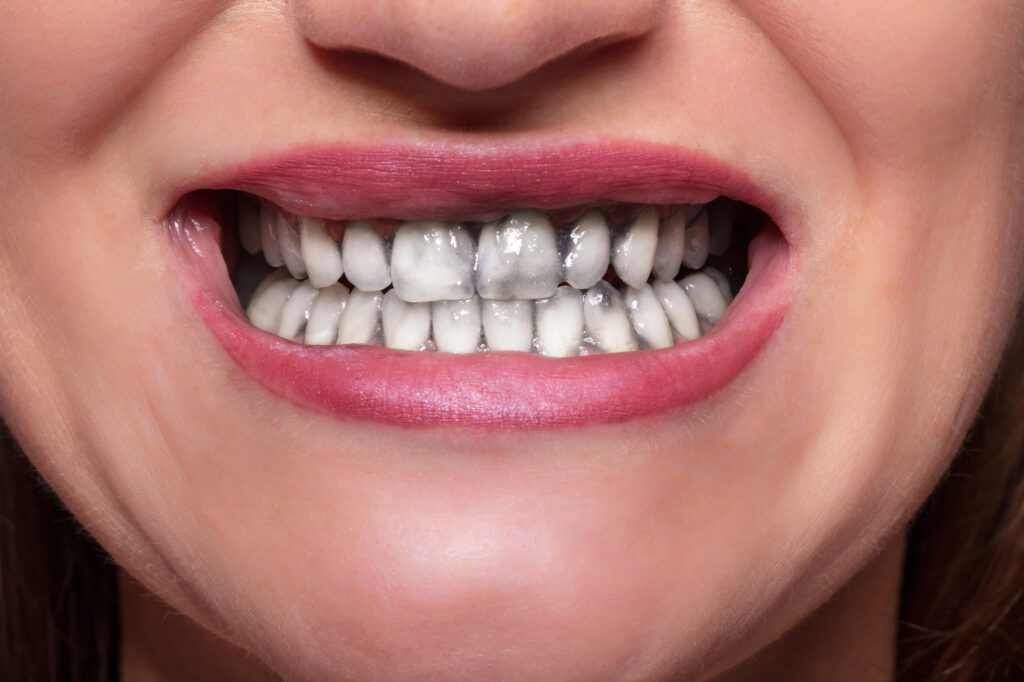
If you’ve been scrolling through social media lately, chances are you’ve seen influencers sharing DIY tricks to get a whiter, straighter, or more flawless smile. But while these so-called “dental hacks” may promise quick fixes or cost-saving benefits, many of them can cause more harm than good.
Why Dental Hacks are Risky
While they might appear harmless or even effective at first glance, dental hacks can often lead to serious oral health issues when practiced without professional supervision. When it comes to your oral health, taking shortcuts can lead to permanent damage—sometimes requiring expensive professional treatments to undo the harm caused by these experiments.
Dental and Orthodontic Hacks to Avoid
Here’s a closer look at some of these risky dental hacks and the real consequences they can have for your teeth and gums.
DIY Tooth Whitening with Baking Soda, Peroxide, or Charcoal
Everyone wants a bright smile, but some popular at-home whitening methods can actually seriously harm your teeth.
Baking Soda seems benign. However, it is abrasive. While it may scrub surface stains off your teeth, it also wears away your enamel over time. Once enamel is gone, it doesn’t grow back, making your teeth more sensitive and prone to decay.
Similarly, while charcoal-based whitening brands claim to detoxify and whiten, like baking soda, charcoal is harshly abrasive. Over time, frequent use can erode the enamel, leading to duller teeth and an increased risk of cavities.
Hydrogen Peroxide, commonly used for whitening, can irritate your gums and damage the soft tissues in your mouth when used in high concentrations or without proper supervision. While professional treatments may utilize peroxide, your dentist is trained to utilize it safely.
What to Do Instead:
For safe whitening, consult your dentist about professional treatments or ADA-approved at-home whitening kits. These options are effective, safe, and protect both your enamel and gums.
Dental or Orthodontic Tourism
Affordable dental treatments in countries with lower costs of care can appear to be a budget-friendly option. However, what you save in money, you might pay for in health consequences. There are several serious risks when it comes to dental tourism, including:
- Lack of Regulation: Dentists and orthodontists in other countries may not always adhere to the same strict regulations and professional standards you find in the U.S.
- Follow-Up Issues: If complications arise after treatment, it’s much harder (and more costly) to seek follow-up care abroad or at home.
- Materials and Equipment: Inferior materials or outdated equipment may be used, potentially leading to infections, breakage, or the need for corrective treatments.
What to Do Instead:
If affordability is a concern, speak with your dentist or orthodontist. Many offer payment plans or financing options that allow you to manage costs while ensuring high-quality, regulated care.
Vinegar Rinses for a Cleaner Mouth
Some influencers claim that rinsing with vinegar (apple cider vinegar, in particular) can kill bacteria and whiten teeth. While vinegar is acidic and can temporarily clean teeth, it comes at a hefty cost.
Vinegar is highly acidic. Regular exposure can erode your enamel, leaving your teeth more vulnerable to sensitivity and decay. Over time, using vinegar as a mouth rinse can weaken your teeth, leading to irreversible damage.
What to Do Instead:
Stick with fluoride mouthwash, which strengthens enamel and helps fight bacteria, or consult your dentist about other safe options for maintaining a healthy smile.
Teeth Shaving to Straighten or Shape
Using nail files or other sharp objects to file down teeth is another alarming trend gaining traction on social media. The belief is that DIY filing can straighten or reshape your teeth, but in reality, it’s one of the most dangerous so-called “hacks.”
Filing your teeth weakens their protective layer, exposing more sensitive inner layers, and because your teeth and enamel do not regenerate, any damage is permanent. Furthermore, improper shaping can lead to bite issues, joint pain, and difficulty chewing. Lastly, infection risks increase when healthy teeth are unnecessarily filed down, as bacteria can seep into the damaged enamel.
What to Do Instead:
If you’re unhappy with the shape of your teeth, talk to your dentist or orthodontist about options like braces, veneers, bonding, or Invisalign. These professional treatments are safe and effective in transforming your smile.
Closing Gaps with Rubber Bands
Another concerning hack is the use of rubber bands to close gaps between teeth, sometimes referred to as DIY orthodontics. While it might look harmless, this practice can have devastating long-term effects.
Rubber bands can slip under your gums and cause infection and even permanent damage to the roots of your teeth. Additionally, without proper alignment tools, teeth may shift improperly, resulting in a misaligned bite that requires orthodontic correction.
What to Do Instead:
If you want to fix gaps in your teeth, professional options like braces, aligners, or bonding are far safer and more effective.
Don’t Risk Your Smile
Your oral health is too important to risk dangerous dental hacks. If you’re considering ways to improve your smile safely, schedule a consultation with our office today.





